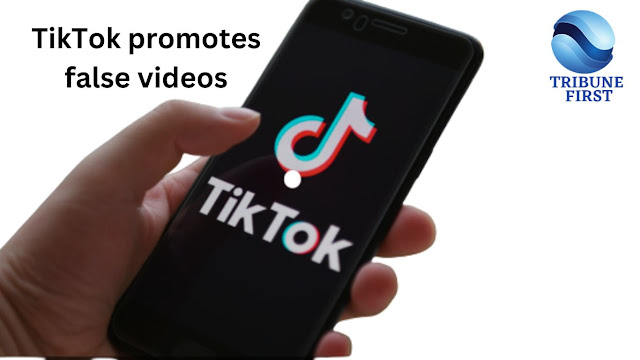On the well-known video platform deceptive edits, false news articles and deep fake news about health are beginning to distort reality.
Expert on altered and synthetic media Henry Ajder stated that this type of manipulation is only growing more widespread. The landscape is completely altered when this volume of content is produced so quickly and at such scale.
Additional online platforms like Facebook which claimed close to three billion monthly active users also provide edited or synthesized content.
However experts claimed it was particularly challenging to catch on TikTok where reality satire and outright dishonesty occasionally blend together in the quick-paced and occasionally live streamed video feed and where the platform encourages its estimated 1.6 billion active users to put their own stamp on other people's content. It's challenging to measure the propagation of possibly hazardous modified media. According to professionals, they worry that manipulations will become more frequent and challenging to identify. The threat of manipulated media however comes more from the way it may further reduce the confidence that many social media users have in ideas like proof and truth.
On TikTok four out of ten posts about liver disease contain false information. People are frequently informed that using herbal medicines, eating mushrooms and eating beef liver can heal the condition.
Videos claiming erroneously that "detox" drinks fake diets and parasite cleanses may treat liver illness are all throughout TikTok.
According to a study presented on Tuesday at Digestive Disease Week in Chicago four out of ten posts regarding liver disease on TikTok are inaccurate.
The posts that made false promises about herbal remedies curing liver illness were the most prevalent.
The liver could be cured by eating mushrooms, beef liver or performing a parasite cleanse according to other videos.
Over 40 individuals in the UK pass away daily from liver disease which is on the rise.
According to the British Liver Trust roughly 20% of those with early-stage non-alcohol related fatty liver disease (NAFLD) will go on to develop a more serious version of the condition.
Depending on the diagnosis there are many treatments for liver illness. While some kinds can be treated by consuming less alcohol or eating less others call for medicine or surgery.
Dr. Macklin Loveland the study's author advised patients to always talk to their doctors about treatment alternatives but in practice many people turn to social media.
The average person may not be aware that a message on social media regarding liver illness contains wholly false information he noted.
Between 1 October and 25 November 2022 he detected 2,223 postings using the terms "cirrhosis" and "liver disease" on TikTok and discovered that 40% of them were inaccurate.
Although the false posts had less interaction than the true ones Dr. Loveland noted they still make up a "high volume" of posts.
Given the high death rate linked with liver illness distributing false information on a medium as well-liked as social media could have detrimental health effects.
In order to combat disinformation he claimed that the findings indicate the need for better TikTok oversight and regulation as well as for doctors to be more visible on the platform.


.png)
.png)
.png)
.png)
0 Comments